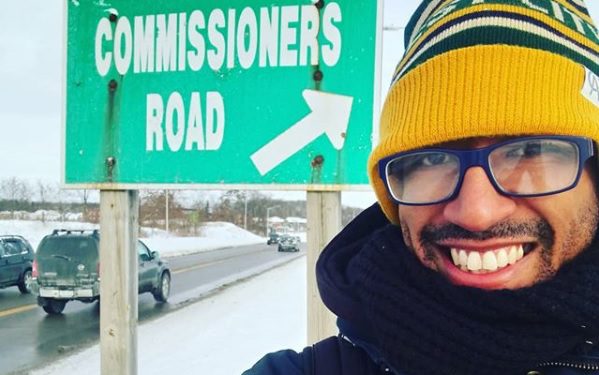Londoners are reacting after a city police constable apologized for dressing in blackface for Halloween more than 10 years ago.

As a member of London’s black community, Cedric Richards said he accepts Const. Katrina Aarts’ letter of apology following the discovery of photos on Instagram which depict her in tribal costume and covered in dark brown paint.
But he wishes there’d been a specific reference to the city’s relationship with black Canadians during a special media conference yesterday, held at London police headquarters.
“I’d suggest that the police officer also learn about why that specific thing, blackface, is never OK,” he said, noting that Aarts’ willingness to take cultural sensitivity training is a “good start.”
The photos were condemned by police Chief John Pare, who called them “racist” and “unacceptable,” but said they don’t amount to misconduct. Aarts didn’t work for the London Police Service when they were taken.
“Blackface is never OK,” said Richards.
As for a particular line about Aarts wanting to become an “ambassador for change,” Richards says it takes more than an apology.
“It takes action. It takes several years.”
Richards also wonders why the photos were put on Instagram in the first place. As someone who posts to social media regularly both for work and his personal life, he explained the importance of considering critically, before hitting “post.”
But when it comes to preventing mistakes from resurfacing online, the CEO of local digital company rTraction, David Billson, said there’s not a lot you can do.
While the issue raises concerns about privacy, rights to users, and who had the rights to post the content, Billson explained that it doesn’t take away from the hurt caused in the community.
But the best thing to do is to react, he says.
“There’s channels for correcting information to come out, so making sure that if you’re going to participate in the medium that you have an engagement level so you can respond to anything that comes out.”








Comments